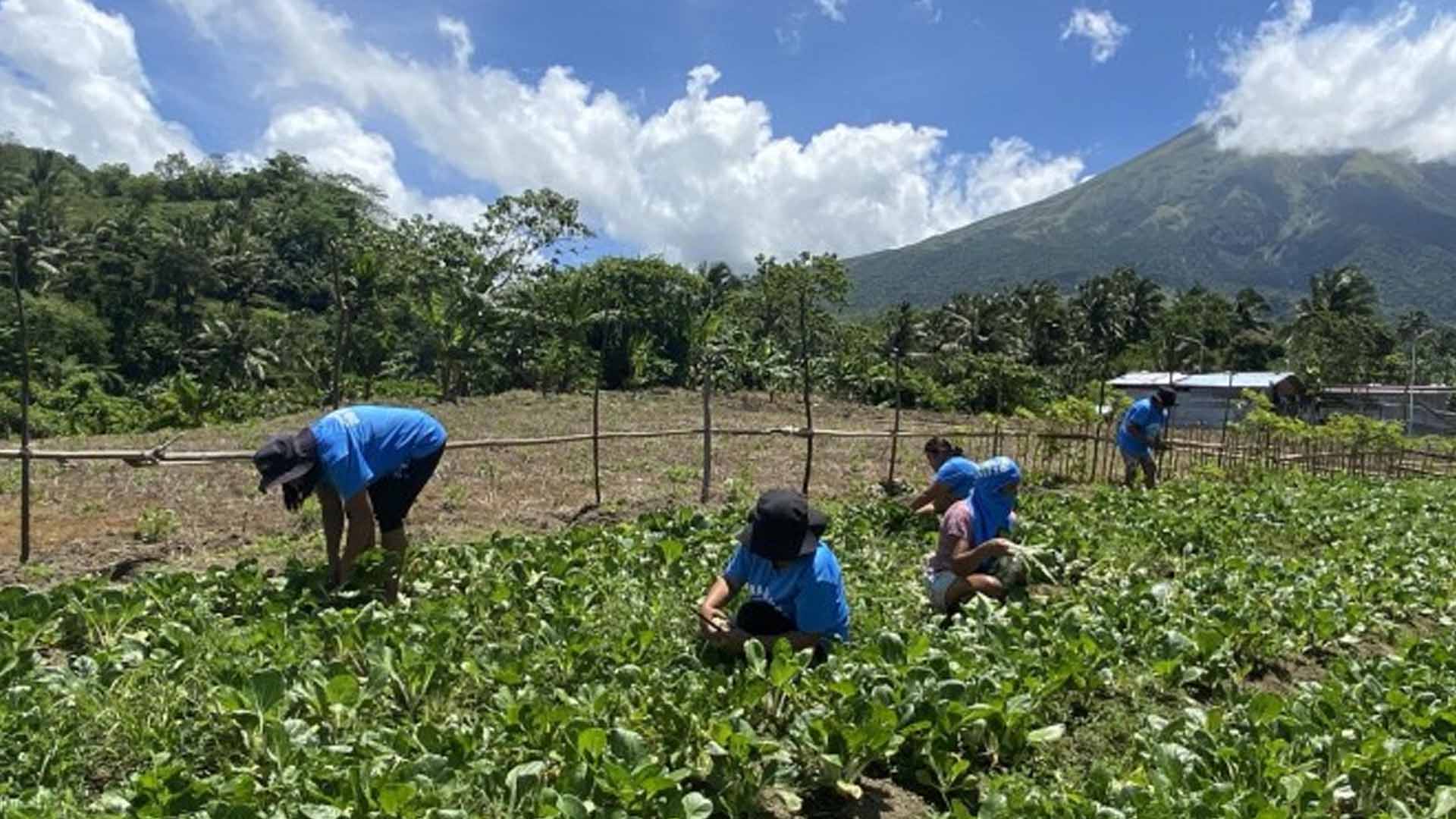In times of crisis, it’s easy to feel helpless and alone. But imagine a group of female evacuees united by a common goal: to provide food for their families.
Cherrylyn Madrona Patriarca, 32, from Barangay Baligang, Ligao City, shared her experience staying in a campsite evacuation center in Basag, Ligao City, for three months after the alert level of Mayon Volcano was raised in 2023.
“Grabe ang hirap sa evacuation center lalo na po kung nagkakasakit ang mga bata. Mahirap sa pagtulog kasi po ang init. Pag may activity sa evacuation center nakaka bawas ng hirap, masaya din lalo na kung may mga ginagawa po (It’s very difficult at the evacuation center, especially when children get sick. It’s hard to sleep because of the heat. When there is activity in the evacuation center, it reduces the difficulty; it is also fun, especially if there is something to do),” she said in a recent interview.
During their stay at the evacuation center, Patriarca and the other evacuees received seedlings that they planted to fight off boredom.
New beginnings
Little did she know that it would be the start of Women Planters of Baligang, an all-women’s group in their town dedicated to farming.
Upon returning home to their barangay in October 2023, they searched for an empty lot where they could continue planting, as they saw the beautiful outcome of planting their own food.
With the help of Albay 3rd District Rep. Fernando Cabredo, they were able to secure 1,000 square meters of city government-owned land to plant pechay, which can be harvested in just 40 days. They also decided to grow chili, upo, and ampalaya.
In February 2024, they were formally organized as the Women Planters of Baligang, comprising 34 women planters who are mostly mothers.
“Before we started our group, many of us were just typical housewives. We spent our days looking after the kids, managing the house, and mostly staying at home,” Patriarca, who eventually became the association’s president, said in the vernacular.
“But then, as we got into gardening and organizing, more women wanted in because we realized we had something special going on,” she said.
“Our families have been our biggest motivation throughout this journey. When we plant, it’s not just about growing veggies; it’s about ensuring our loved ones always have enough to eat. It’s like a guarantee that our tables will never be empty. We can get food from our harvest,” she said proudly.
From mere housewives to planters, these women were able to turn their lives around.
After harvest, they get to earn at least PHP11,000.
Daisy Mae Nate, 29, a member of the group, describes the organization as a blessing since she was able to stand on her feet, provide food to her family, and have an additional source of income.
“We are no longer ashamed to talk to others; when the government has aid or assistance, we are one of the priorities; we have a voice in the barangay,” she said.
“The association is a helpful way to learn about additional income. The investment needed to buy compost and insect spray comes from the members. We also have a buyer who takes our products to Masbate,” Patriarca added.
Women empowerment
Every Saturday, just hours before dawn, Patriarca and her friends can be seen in their little garden in the village.
“We visit the site on Saturdays since the kids are off school. It’s not just about planting; we make sure to squeeze in snack breaks, chat, and share some laughs,” Patriarca said.
“There’s this one tree we’ve grown fond of —it’s like our unofficial meeting spot,” the mother of two said.
“Each of us has our tasks mapped out, from prep(aration) work to planting and all the way to harvest time. Being part of this association isn’t just about gardening; it has taught us so much about teamwork, independence, and what we’re capable of as women. The extra income is an added bonus,” she said.
Despite the problem with irrigation, as they need to travel long distances to obtain water to keep their garden healthy, Patriarca said their sunny disposition enables them to overcome this challenge.
“There are so many challenges that we encounter, but we do not let that stop us,” the group leader said.
“As a group, we discuss the challenges that lie ahead and work together to overcome them,” she added.
In a male-dominated field like farming, the Women Planters of Baligang stands as a testament to the power of what women can do. Their stories prove that when given the opportunity, women planters can nurture their farming skills to benefit their families and communities. (PNA)




